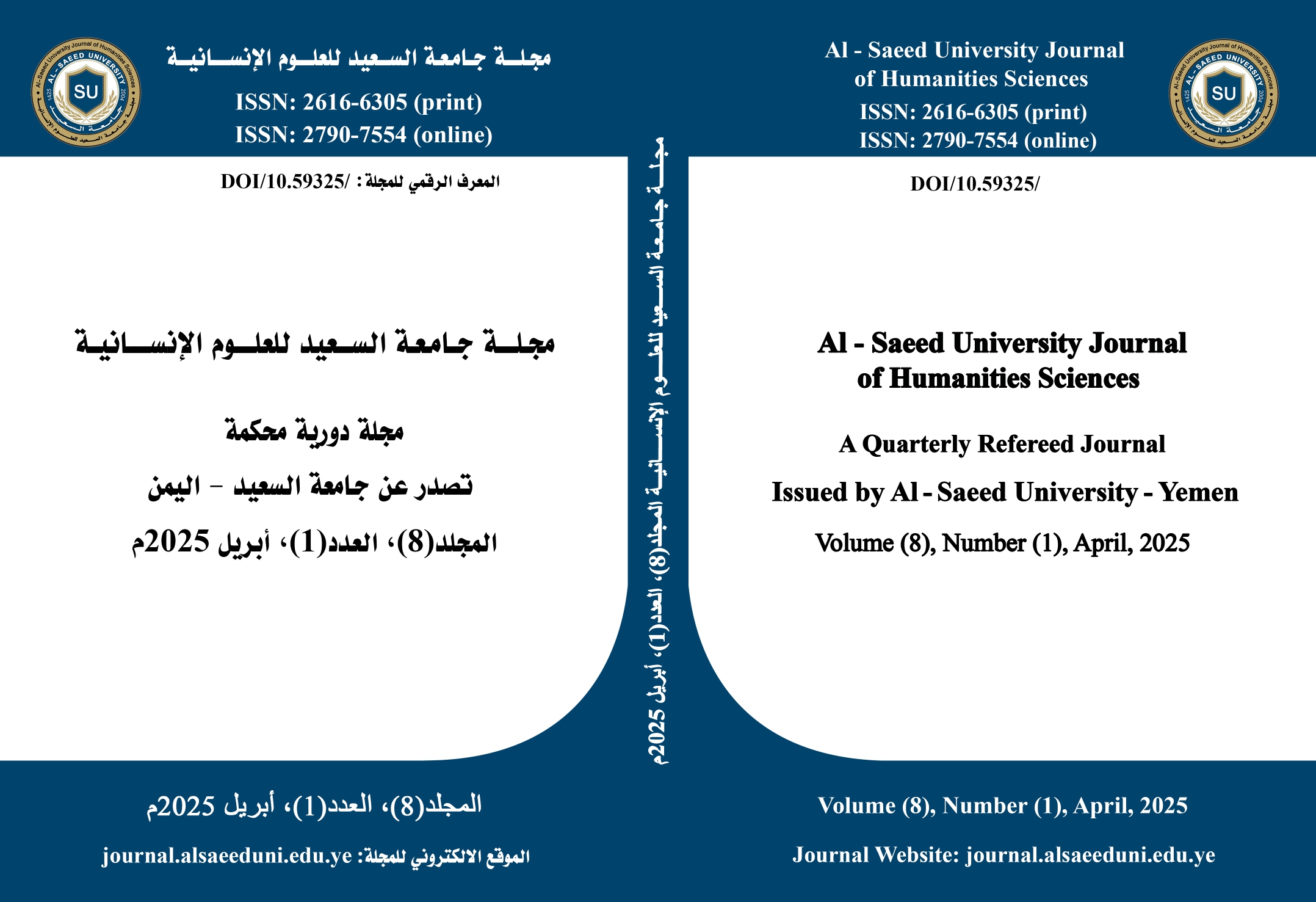Flexible law standards contribute to regulating the financial market
DOI:
https://doi.org/10.59325/sjhas.v8i1.250Keywords:
Flexible law, financial market, recommendations, instructions, regulationAbstract
This study deals with flexible law standards and their role in regulating the financial market, and aims to identify the types of these standards, their sources of effectiveness, and their functions by reviewing comparative legislation such as French, American, and Tunisian law.
The idea of the research is based on the urgent need in Yemen to establish an organized financial market, which requires the establishment of an integrated legal system and an appropriate legislative framework. In this context, Law No. (216) of 2010 was issued, which stipulated the establishment of the Securities Market Authority in Yemen and defined its regulatory authority, including the authority's tasks and powers.
The study aims to shed light on another type of non-traditional standards, namely flexible standards, which the Yemeni legislator must take into account to meet the needs of the evolving financial market. The study was divided into two main requirements, where the first requirement classified the flexible law standards, and the second requirement evaluated their effectiveness.
The study concluded that since financial markets are complex and require a flexible and responsive regulatory mechanism to keep pace with rapid developments, comparative legislation has granted financial market regulatory authorities the authority to issue various flexible standards that include instructions that contribute to clarifying the texts followed, in addition to standards that guide behavior such as recommendations, positions, and opinions.
Although flexible law lacks legal obligation like traditional law, it remains powerful thanks to its normative power that affects the behavior of individuals. Its effectiveness depends on the legitimacy and powers of its source, as well as the method of its formulation in cooperation with recipients, in addition to the necessity of flexible and responsive regulatory rules to keep pace with successive developments in the financial market. This necessary presence of rules prompts individuals to comply with them due to their need for them to fill the gap in binding rules that require longer formulation.
Therefore, the study recommended that the Yemeni legislator grant the Capital Market Authority to issue these flexible regulatory standards due to their great effectiveness in regulating the financial market.
Downloads
Published
How to Cite
Issue
Section
License
Copyright (c) 2025 عمران سعد أحمد حساني

This work is licensed under a Creative Commons Attribution 4.0 International License.
copyright is retained by the authors. Articles are licensed under an open access Creative Commons CC BY 4.0 license, meaning that anyone may download and read the paper for free. In addition, the article may be reused and quoted provided that the original published version is cited. These conditions allow for maximum use and exposure of the work.



